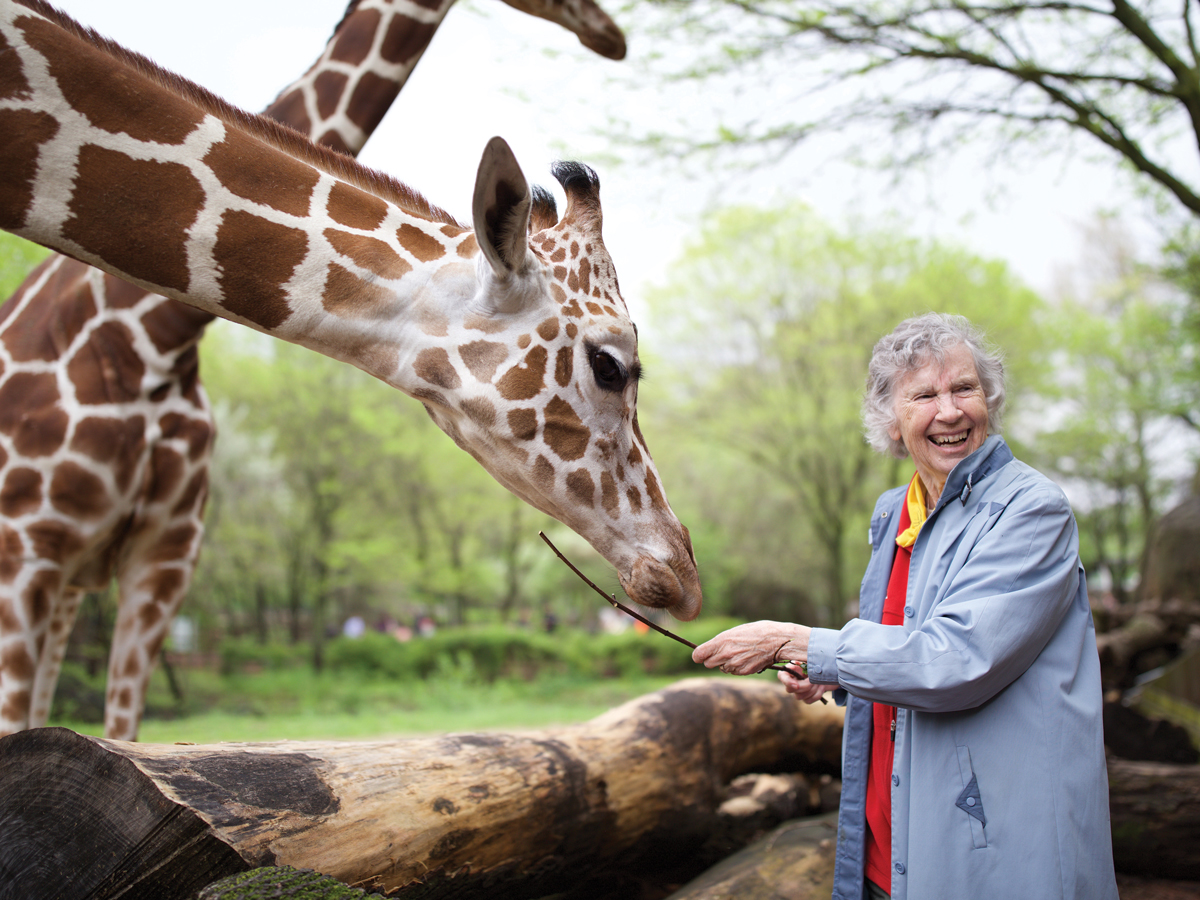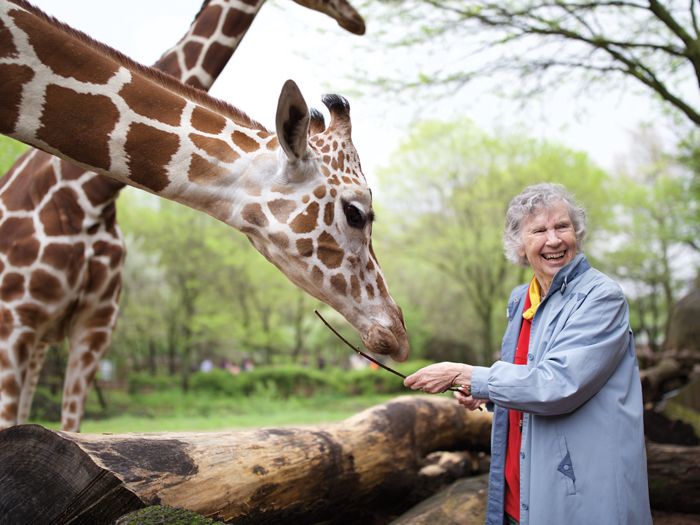
‘The Woman Who Loved Giraffes’ and the CPA sharing her story
 Anne Innis Dagg was appointed to the Order of Canada in 2019 (Elaisa Vargas)
Anne Innis Dagg was appointed to the Order of Canada in 2019 (Elaisa Vargas)
The year was 1956, and Anne Innis Dagg, 88 years old today but a 23-year-old University of Toronto grad at the time, was planning a research trip to Africa to study giraffes.
It would be the first journey of its kind, preceding Jane Goodall’s first study of wild chimpanzees by four years and Dian Fossey’s research on mountain gorillas by seven. There was just one problem: Despite writing to everyone she could think of in several African countries, she couldn’t find a place to conduct her research—until she got the idea to sign her name “A. Innis.” Sure enough, with her gender obscured, she was able to secure accommodations at Fleur De Lys, a citrus and cattle farm not far from South Africa’s Kruger National Park. She would go on to spend a year at the farm observing every detail of giraffe behaviour, groundbreaking work that would have a lasting impact on zoology.
In 1958, Dagg published the very first scientific article on an African mammal. In 1976, she published her first book about giraffes, Giraffe: Biology, Behaviour and Conservation, which scientists still consider the seminal work on giraffe behaviour. Dagg slowly faded from public life. Despite going on to earn a PhD and publish peer-reviewed articles on animal behaviour—including the first English-written observations of homosexual behaviour in animals—she was denied tenure at three Ontario universities. The reason? Blatant sexism: Many post-secondary institutions at the time refused to hire married women for tenure-track roles. After applying for a biologist position at Wilfrid Laurier University, Dagg was passed over by the all-male hiring committee in favour of an applicant with lesser credentials. She took her case to the Ontario Human Rights Commission but ultimately lost.
So, over the next three and a half decades, she worked as a student resource person in the independent studies program at the University of Waterloo, wrote citizen science papers and published feminist texts and books on animal behaviour. But no one—not even her own kids—understood just how much of a pioneer she was.
“It’s kind of embarrassing, but the first time that I really got what she [had accomplished] was when I watched The Woman Who Loves Giraffes,” says Dagg’s daughter, Mary, a CPA, referring to the 2018 documentary that thrust the zoologist back into the limelight.
After its release, Dagg, who was appointed to the Order of Canada in 2019, became the subject of magazine articles, radio segments and TV spots. She received honorary degrees and even an official apology from each of the three schools that rejected her back in the ’70s. And, she was flooded with questions about how people could help giraffes, which are now more endangered than elephants.
“Anytime we went to a showing, people would say, ‘My God, this woman is amazing. How can I help?’ We realized we’ve got this critical mass, and we should do something with all of this pent-up energy,” Mary says.
The result was the Anne Innis Dagg Foundation. Mary often jokes that she didn’t inherit her mother’s love of biology, but she decided to take a leave of absence from her job as senior director of finance at a Bay Street law firm last year so she could help get the foundation off the ground. This year, she switched gears entirely, leaving for the world of conservation non-profits.
Now, she spends her days fundraising, planning screenings and educational events, and even meeting with producers to pitch a dramatic series based on her mother’s life.
It’s all part of her efforts to shepherd her mother’s legacy.
“My mother was way ahead of her time,” Mary says, referring to both Dagg’s zoological research and her dedication to rooting out sexism in science. “People weren’t ready to learn or understand them back then, but now they’re realizing, ‘Oh, yeah, we should have been doing that for a long time.’ ”
ANOTHER APPROACH
Read about other CPAs who are charting a different path, like the accountant who runs a sustainable beverage business, the farmer who uses his tech and data skills in a new way and the deputy minister who is making history in public sector finance.